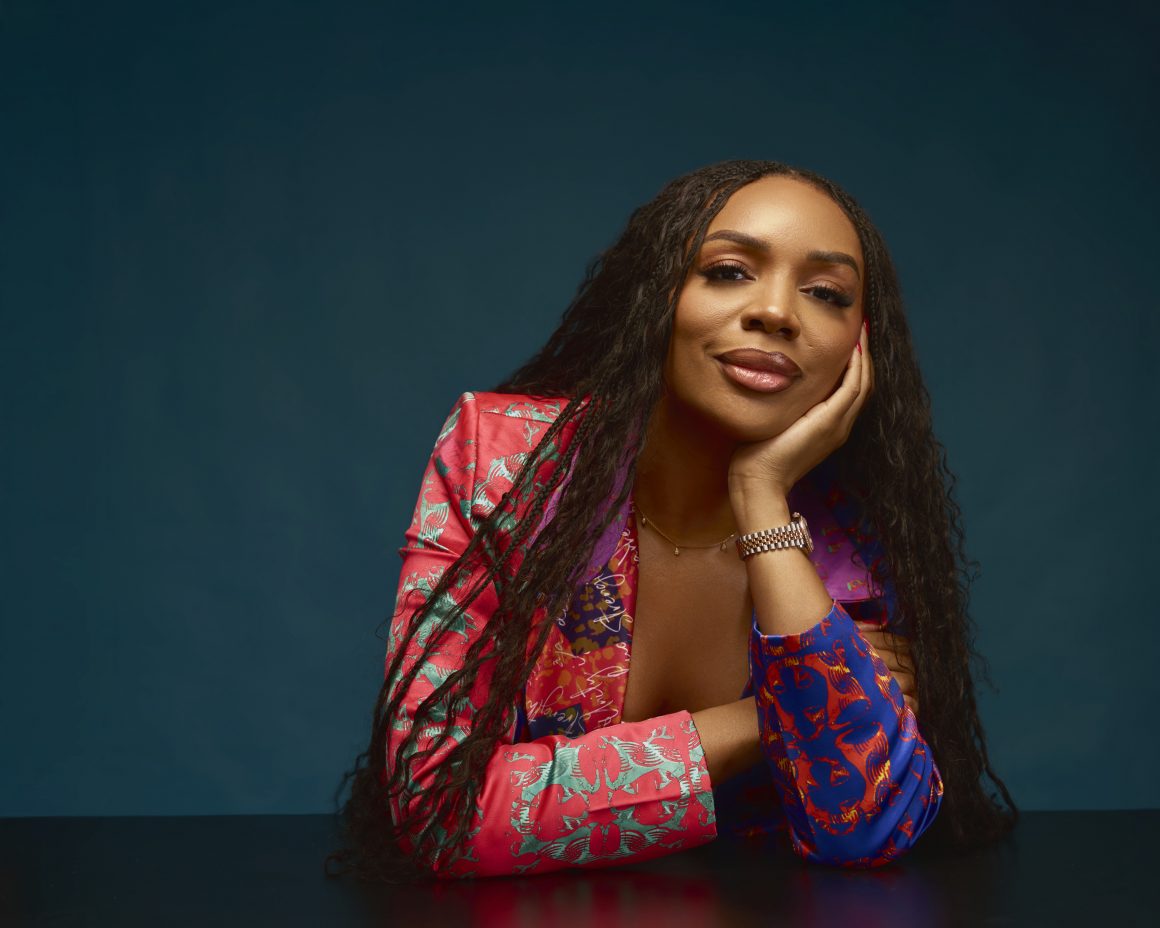It’s not every day you meet someone who seamlessly merges business acumen with a deep commitment to social impact, but Neya Kalu does it with an effortless grace that commands attention. A lawyer by training, an entrepreneur by passion, and a media executive by responsibility, she is redefining leadership in ways that transcend boardrooms. From steering The Sun Newspaper as Chairman to running Basecoat, her successful chain of nail salons, and championing women’s empowerment through the Neya Kalu Foundation, she wears many hats—but each with an unwavering dedication to excellence and impact.
Recently, she added another feather to her already impressive cap when she was named one of THISDAY Newspaper’s Young Global Leaders, a recognition that underscores her influence across industries. As the daughter of former Abia State Governor and Senator Orji Uzor Kalu, success might seem like a natural inheritance, but Neya has carved her own distinct path, proving that it really is not just about legacy but about vision, grit, and the ability to create lasting change.

In this exclusive interview , we enter into the world of Neya Kalu—the entrepreneur, the media girl , the philanthropist, and most importantly, the ‘Sister’s Keeper’.
Let’s talk about your role in the media space. Taking on the position of Chairman of The Sun Nigeria at such a young age must have been a whirlwind. What were your first thoughts when stepping into this leadership role?
Taking on the Sun’s chairman role was somewhat intimidating, especially since it came as a surprise. I learned about it along with the rest of Nigeria. However, this unexpected turn allowed me to embrace the challenge with less preparation, giving me the freedom to make mistakes and ultimately refine my skills in the process
What were some of the biggest challenges you faced early on, and how did you overcome them?
One of my greatest challenges was navigating the media landscape, which is predominantly male-dominated, making it difficult for me to find my footing. Additionally, being young made it challenging to be taken seriously in the role of chairman. However, I view these as minor speed bumps on the path to greatness. I also had limited experience in media, so I dedicated myself to self-education and learning from my colleagues, from entry-level staff to executives.
As one of the 25 most powerful women in journalism, how do you hope to inspire and empower women to break barriers in the media industry?
Being recognised as one of Nigeria’s top 25 most powerful women in journalism was a tremendous honour and opened many doors for me. My message to women is to keep pushing forward, no matter the obstacles. In the various spaces I’ve shared my story, I emphasise the importance of learning from mistakes and understanding that life’s path
isn’t always straightforward. I receive numerous emails and messages daily, and I believe that acknowledging these communications is a small way to inspire others. I make it a priority to respond to as many as I can with advice and encouragement. While many see me as an inspiration, I am equally motivated by the countless women who reach out, seeking guidance as they pursue their dreams.

Many younger Nigerians know you more as the CEO of Basecoat Nails. What sparked your interest in launching the brand, and how has your journey been as a beauty entrepreneur in such a dynamic market been?
I actually prefer being recognised as the CEO of BaseCoat rather than just The Chairman of The Sun, as it allows me to embrace my age authentically. I’ve loved nails since I was young and always dreamed of owning nail salons, though I never thought it would become
a reality since my education and career path didn’t align with that vision. It wasn’t until I had my son and resigned from my banking job that I decided to pursue my true passion.
That’s how BaseCoat was born. The joy I feel from seeing so many women enjoy their
manicures and pedicures is unparalleled. While I wear many hats, being the CEO of BaseCoat brings me the greatest happiness. In the beauty industry, there are endless opportunities, and I recognised a gap in the market that I was able to seize.
You wear many hats—Chairman of The Sun Nigeria, CEO of Basecoat Nails, and leader of The Sun Heavens Hotels and Resorts. How do you balance all these responsibilities while staying on top of your game?
I juggle much more than that, and it’s a miracle I haven’t lost my mind yet! I’ve always had a strong drive and determination to excel in everything I do, and that mindset has helped me stay grounded. I’m skilled at compartmentalising and rarely bring work home. I believe there’s a right time and place for everything, just as the greatest book of all time, the Bible, teaches us.

Running a business in Nigeria comes with unique challenges. What is one misconception people have about entrepreneurship here, and what is the reality?
The reality of entrepreneurship in Nigeria is that it can be incredibly challenging. While many successful entrepreneurs might create the impression that it’s easy, the complexities are vast. I’ve often said that if the bureaucratic red tape surrounding regulations for entrepreneurs could be eased, especially given our economic challenges, it would make a significant difference. Women represent a substantial percentage of entrepreneurs in Nigeria, sub-Saharan Africa and globally, yet we don’t receive enough recognition for our contributions to the nation’s GDP. There are 23 million female entrepreneurs, which account for 41% of the country’s micro businesses. Although the potential rewards can be great, the uphill battle can be daunting enough to make one consider giving up.
Your foundation, the Neya Kalu Foundation, is deeply rooted in empowering women. Could you tell us about a recent project that made you feel particularly proud?
The Neya Kalu Foundation has been active for over a decade, but the project I’m most proud of is Femgineers. I have been working closely with a group of girls from public schools on this initiative, which was started by a dedicated headteacher at a school in Lagos. The project focuses on empowering girls to step outside their comfort zones andpursue knowledge in fields that are traditionally male-dominated.
The phrase ‘Sister’s Keeper’ is often associated with your advocacy work. What does it mean to you, and how does it guide your foundation’s initiatives?
The term “sister’s keeper” has been around long before my time, but it holds deep significance for me, especially during my outreach programs, where I focus on supporting women and children. I understand what it feels like to be alone and the uplifting power of being surrounded by incredible women who support and encourage you. If I can
be even a small part of that for someone else, I believe I would have fulfilled my purpose on this earth. Unfortunately, I don’t document the activities of the Neya Kalu Foundation because I want to avoid putting anyone in a position of ridicule or making them feel small. I truly wish more people could witness the amazing women I meet during my outreach efforts.

Your father, Orji Uzor Kalu, is a prominent political figure in Nigeria. How has his leadership journey influenced your approach to leading people and building businesses?
My relationship with my father is truly special. I see him primarily as my dad rather than just a public figure or leader. I concentrate on who he is at home and how he interacts with the staff and those around him. From a young age, I wanted to be close to him, admiring his kindness and thoughtfulness toward others. I’ve always aimed to embody those
qualities in my own life. My leadership style has been significantly influenced by how he relates to people, particularly those from whom he has nothing to gain.
What’s the best piece of advice you’ve ever received, and how has it shaped your career and decision-making process?
The best advice I’ve ever received, which resonates with me, is that
comparison truly is the thief of joy and peace of mind, and for me, nothing is more important than those two. I focus on my own path and do what I can.
If you weren’t leading The Sun Nigeria, Basecoat Nails, or running other ventures, what career path would you have chosen?
If not for my current path, I might still be working at the bank. I appreciate the security that comes with a 9-to-5 job. Being a creature of habit, having a schedule helps me stay organised and motivated. While the entrepreneurial life has its rewards, the unexpected challenges can sometimes feel quite overwhelming.
What does a typical day in Neya Kalu’s life look like, juggling your many roles and responsibilities?
What does a typical day look like for me? No two days are the same, and I haven’t experienced a “typical” day in quite a while. However, if I could envision one, it would involve spending the entire day in bed, unplugged from my phone and responsibilities.
The media industry in Nigeria is undergoing significant shifts. What excites you most about its future, and how do you see The Sun Nigeria contributing to that transformation?
As we all know, media plays a crucial role in any country. The most exciting aspect of the future is its digitalisation, allowing us to reach more people and remote areas. With the help of AI, we can disseminate accurate information more quickly and efficiently. There is tremendous potential in the media space, and it just needs to be harnessed effectively. Every day at The Sun, we strive to study ongoing trends as a traditional media house. We aim to strike a balance between satisfying our long-standing customers while also attracting new ones with fresh trends and innovations.
Looking back on your career so far, what’s the moment you’re most proud of, and why does it stand out to you?
My proudest moment in my career is knowing that my father always believed in me. He consistently gave me the opportunity to prove myself and never allowed gender or age to be barriers to my success. He supported and trusted his daughter wholeheartedly, and to me, that is the greatest achievement in my career.
Finally, where do you see yourself in the next decade—as a leader and a woman shaping the future of business, media, and philanthropy in Nigeria?
For a long time, I’ve found it challenging to answer that question. While I’ve already shared one of the best pieces of advice I’ve received, another wise suggestion was to take it one day at a time. That’s exactly what I’m trying to






